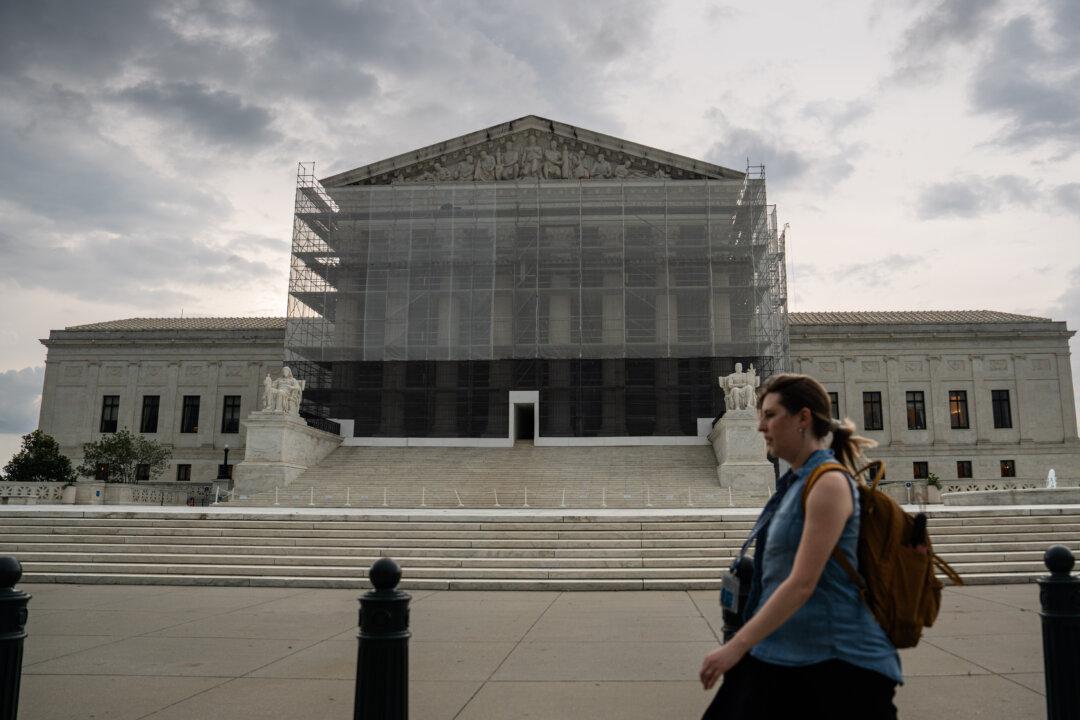The Supreme Court on June 26 ruled that Texas violated the rights of a death-row inmate convicted of murder by not allowing him DNA testing that he says proves his innocence.
The decision was 6–3; Justices Samuel Alito, Clarence Thomas, and Neil Gorsuch dissented.
Justice Sonja Sotomayor issued the majority opinion, which found that a lower court had erred when it ruled that Ruben Gutierrez could not sue for DNA testing since that court said it was unlikely to overturn his death sentence.Thomas, in his separate dissent, wrote that “this court has no business intervening in this case in the first place.”
He said the majority’s ruling allowed procedural rules—which are intended to prove actual innocence—to be turned into a “tool for obstruction.”
“Twenty-six years after the brutal murder of Escolastica Harrison, this court stayed Gutierrez’s impending execution. Why? Not because Gutierrez had made a compelling allegation of innocence,” Thomas wrote.
“Rather, the court stayed the execution to decide whether Gutierrez has standing to raise a due process challenge to Texas’s post-conviction procedures.”
In 1998, Ruben Gutierrez was accused of murdering 85-year-old Escolastica Harrison during a robbery at her mobile home in Brownsville, Texas.
Harrison had kept $600,000 in retirement savings in her home, since she distrusted banks.
Prosecutors said that, according to a statement he made to police, Gutierrez admitted that he and two accomplices had planned the robbery and that he was inside the home when the murder occurred.
Statements by his accomplices also place him at the scene of the crime.
But Gutierrez insisted that his statement was coerced, that he had previously told police that he was not in the mobile home, and had no idea that his accomplices would murder Harrison.
Texas law allows a person to be charged with capital murder even if they were only an accessory to the crime.
However, such a person cannot receive a death sentence unless they intended to kill the victim or “anticipated that a human life would be taken.”
In Gutierrez’s case, the jury determined that he either directly caused Harrison’s death or knew that it would occur. He was sentenced to death.
In 2010, Gutierrez sought to overturn his execution through DNA testing, which he alleges would prove that he was not present for the murder.
The request was denied by the trial court and then again by the Texas Court of Criminal Appeals.
The appeals court ruled that even if his DNA was not found at the scene of the crime, this alone did not establish his innocence, since he was an accessory to the crime that resulted in the murder.
After a Texas district court ruled that Gutierrez was entitled to DNA testing, District Attorney Luis Saenz refused to turn over the evidence and made clear that he would not do so regardless of a court decision.
The U.S. Court of Appeals for the Fifth Circuit overturned the district court’s decision because the conviction was unlikely to be overturned even if his DNA was not found at the scene of the crime.
It also ruled that Gutierrez had no standing to file the lawsuit, since Saenz was unlikely to allow the DNA testing.
The majority sided with Gutierrez, ruling that Saenz’s refusal to turn over the evidence cannot invalidate the convicted man’s due process rights.
Justice Samuel Alito, in his dissent, noted that Gutierrez had altered his story to police twice, undermining his claims of innocence.
He agreed with the Fifth Circuit’s assessment that Gutierrez lacked standing because DNA testing would not exonerate him.





